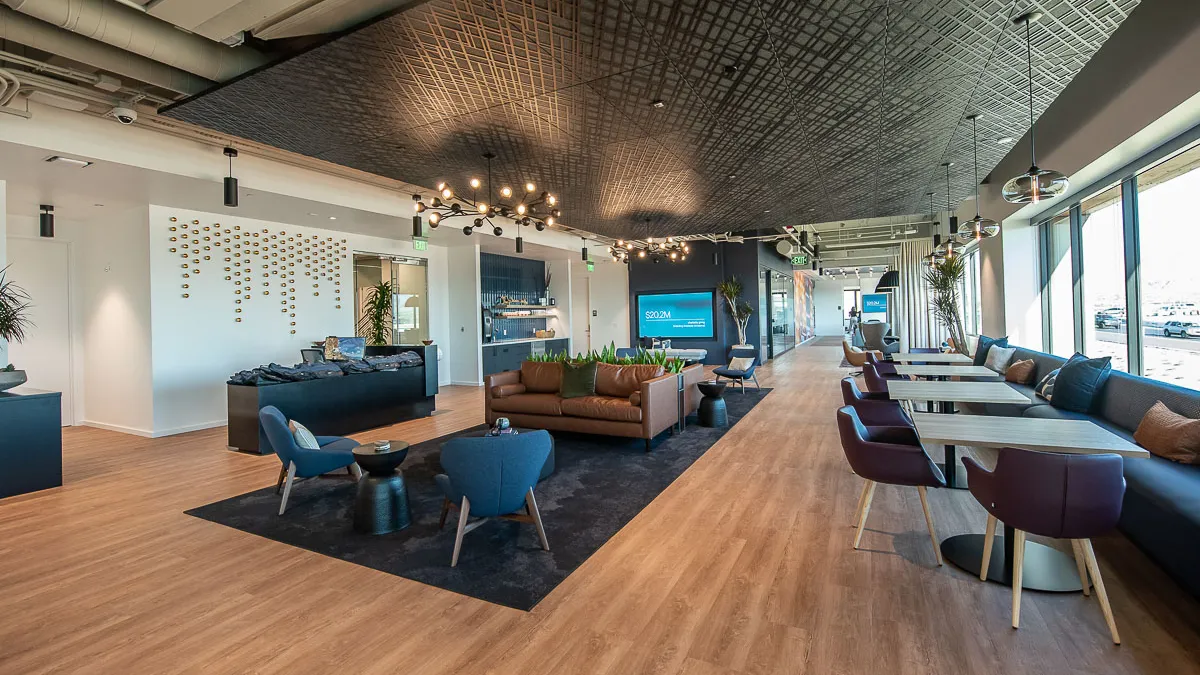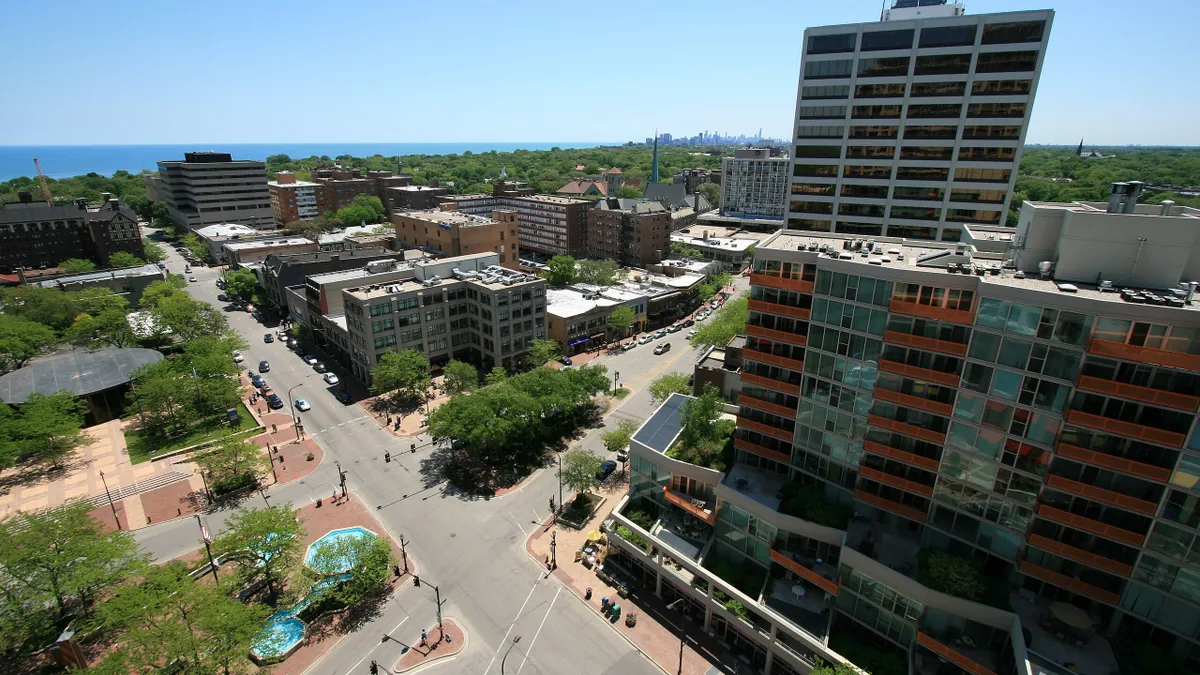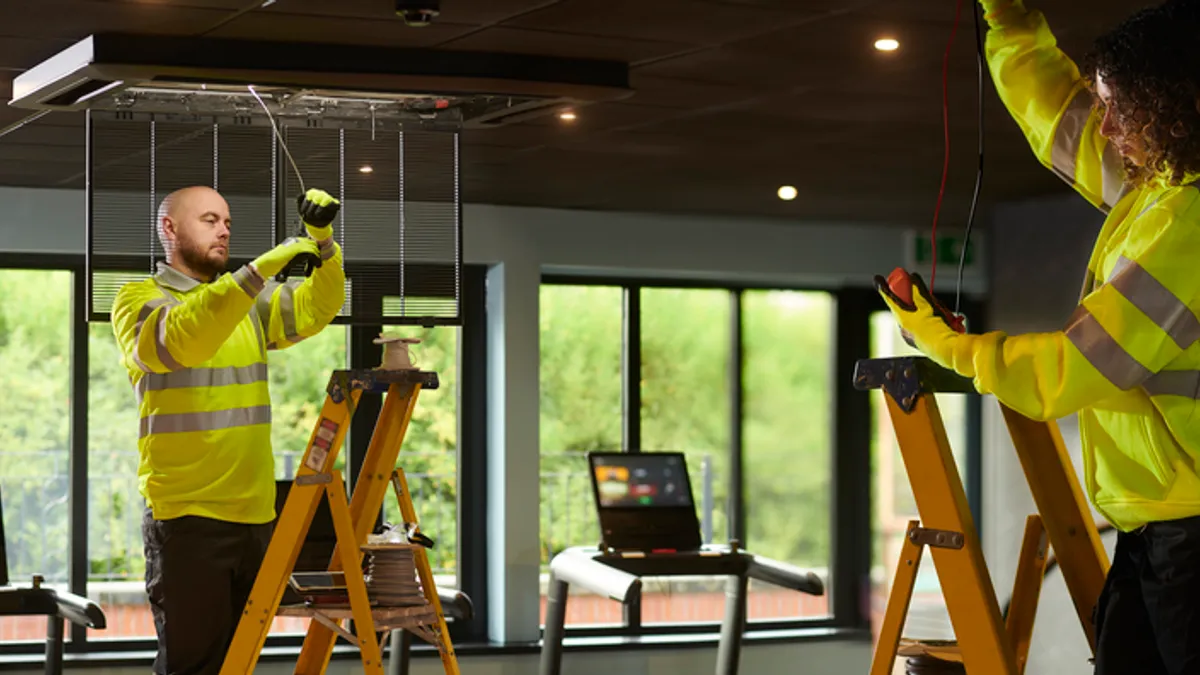Dive Brief:
- CBRE’s facilities management business grew in the third quarter of 2023, but challenging commercial real estate market conditions have driven a slowdown in the company’s property sales, debt financing deals and leasing activity, CBRE executives said during its third-quarter earnings call Oct. 27.
- The firm’s facilities management net revenue grew 14% year over year, part of a 14.5% increase in year-over-year operating profit for its Global Workplace Solutions unit. Executives attributed the growth to significant new business and client expansion.
- CBRE’s project management net revenue increased 15% year over year, to $776 million, with robust growth in its GWS Local and Turner & Townsend businesses. The industrial and logistics and healthcare and energy sectors drove GWS growth, the company said.
Dive Insight:
Within the Global Workplace Solutions business, the tech, media and telecommunications segment provides 23% of the revenue, while financial services and life sciences and healthcare segments are each 20%. CBRE CFO Emma Giamartino said that the GWS business continues to benefit from a focus on industry sectors that allow it to meet the unique needs of a diversified client base. Its year-to-date growth has been notable in three sectors, she said: “Health care due to our enhanced capabilities to meet client needs; energy spurred by strong expansion with existing clients, along with growth in renewable energy; and industrial logistics, an industry that is increasingly embracing outsourcing in their manufacturing plants to reduce costs.” She also noted that CBRE continues to see strong revenue growth in its GWS Local business driven by a mix of new and existing clients.
The growth in first-generation outsourcing clients reflects an increasing interest in reducing occupancy costs amid the “uncertain economic environment,” Giamartino said. “Our remaining pipeline is filled with occupiers that are looking to either expand their scope of services with CBRE or switched their service provider to CBRE because of our ability to provide more integrated global solutions.”
The firm saw a 16% decline in global leasing revenue, missing management expectations. Leasing revenue across the Americas fell 21% during the third quarter compared with Q3 2022, CBRE said in an earnings release. Given interest rate hikes and the drop in property prices, a meaningful rebound will not occur until the second half of 2024 at the earliest, CBRE’s president and CEO, Bob Sulentic, told investors and analysts during the earnings call.
Economic uncertainty continues to delay occupier leasing decisions, particularly for large office and industrial deals, the company said. While office leasing declined to the mid-15% levels in line with management expectations, industrial leasing is performing slightly below expectations, driven by large transactions and a reset among the largest occupiers of industrial space, “who took on a lot of space over the last couple of years,” Giamartino said during the call.
Sulentic explained that CBRE underwent an extended period when big industrial tenants were taking up space, not only to support their growth, but also to hedge against future growth. “They are now burning through that space. And when that’s done, we will start to see leasing come back by those big industrial users,” he said, pointing to a low 4% vacancy rate in the company’s industrial space.
Revenue decline was most pronounced in property sales, which fell 38% amid caution among buyers and sellers and a subsequently constrained deal flow on the heels of interest rate increases for the past 90 days, Giamartino noted during the earnings call. Property sales revenue fell 41% year over year across the Americas. .
In light of capital market challenges, CBRE said it has lowered its expectations for 2023 core earnings per share to a mid-30% decrease from the 20%-25% decline anticipated in its Q2 earnings report. The company attributes its reduced outlook to its interest-rate-sensitive businesses. “While it’s difficult to forecast the timing of the capital markets recovery, the resilient and cyclically favored businesses we mentioned earlier have generated over $1.5 billion of [share of profit] over the last 12 months, and we expect them to represent over 60% of CBRE’s SOP for full-year 2023,” Sulentic said.
Companies looking to slash costs are inclined to choose a service provider like CBRE to manage their facilities because that provides them significant cost savings, Sulentic noted on the call. While there may be concerns about reduced capital spending, CBRE’s strong momentum in project management, focused on improving office space experiences and its involvement in infrastructure and green energy are expected to offset these concerns and sustain double-digit growth in the coming year, despite economic uncertainties, Sulentic said.














